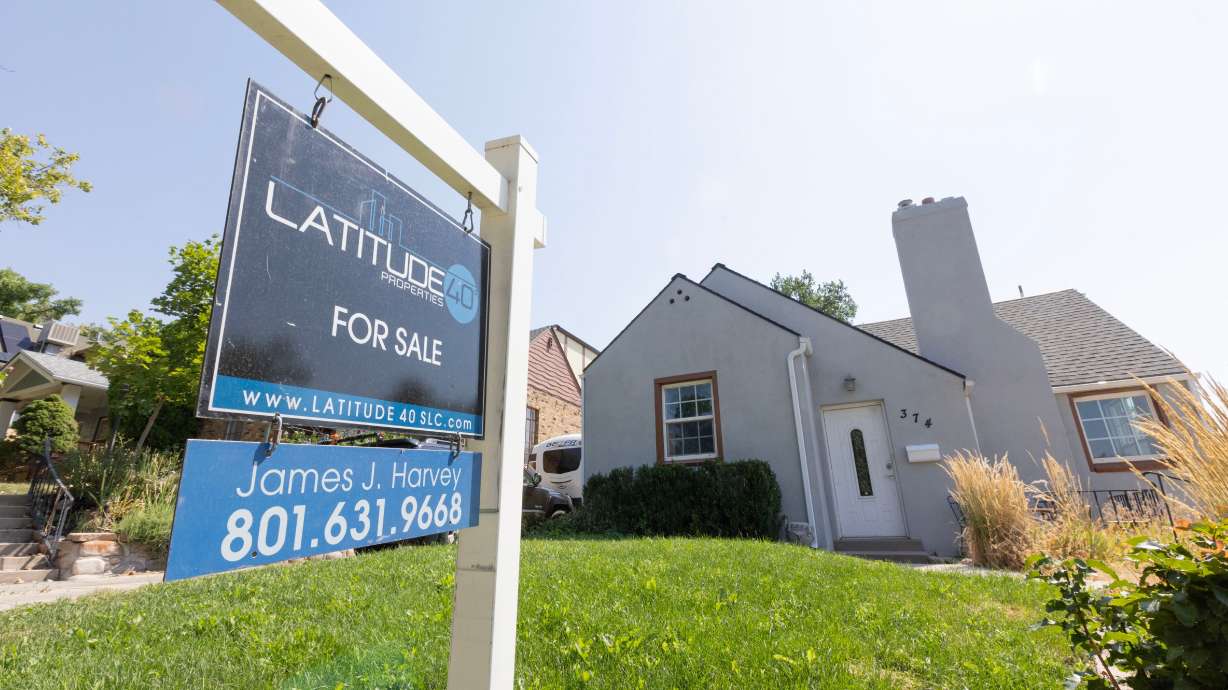Estimated read time: 3-4 minutes
- Utah ranks eighth-worst for starter homes, with Salt Lake at 49th of 54 large U.S. metropolitan areas.
- Factors in the rankings include low availability of small homes and high mortgage-to-income ratios.
- Gov. Spencer Cox aims to build 35,000 starter homes by 2028 to address the issue.
SALT LAKE CITY — Utah doesn't do well in new rankings of the nation's best places to buy a starter home.
A new analysis by the research company Construction Coverage ranked Utah the eighth-worst state to find a home priced for first-time buyers, with the Salt Lake area coming in at No. 49 among 54 large U.S. metropolitan areas.
What accounts for the dismal showing? Here are some of the factors:
- Utah has the nation's lowest percentage of homes with three or fewer bedrooms, 42.2% compared to a U.S. average of 67.5%.
- The median sale price for starter homes in the Salt Lake area is $476,668.
- The monthly mortgage payment on a typical Salt Lake area starter home requires 45.7% of a median renter income, compared to 38.4% nationwide.
Other Utah cities and surrounding areas also were low in the rankings. Provo-Orem was the 10th-worst midsized metro area in the country for starter homes. On the list of the worst small metro areas, Logan was No. 9 and St. George, No. 10.
The findings shouldn't come as a surprise. Last week, Utah Gov. Spencer Cox held a summit with mayors at the Governor's Mansion about what needs to be done to meet his goal of building 35,000 new starter homes in the state by the end of 2028.
Cox said he told the local leaders he wanted them to be "as passionate about this as I am, understanding that the very future of our state hangs in the balance here," warning that all of the state's many accolades will "go away if we don't solve this in the next five years."
Since January 2024, the state has added just over 5,000 starter homes, according to a new statewide housing dashboard launched by Cox's office. Soon, "starter condos" should also be eligible for the $300 million in public funds set aside for loans to builders.
Of course, the issue of home ownership becoming increasingly out of reach is not unique to Utah. The analysis ranked California, Washington, Colorado, Massachusetts, New Jersey, Maryland and Idaho as even more difficult states for finding a starter home.

The metro areas that ranked even lower than the Salt Lake area were San Jose, Sunnyvale and Santa Clara, California; Seattle, Tacoma and Bellevue, Washington; San Diego, Chula Vista and Carlsbad, California; San Francisco, Oakland and Berkeley, California; and Denver, Aurora and Lakewood, Colorado.
The best states to look for a starter home ? West Virginia tops that list, followed by Mississippi, Oklahoma, Arkansas and Louisiana. Among large metro areas like Salt Lake, the best list began with Pittsburgh, followed by Birmingham, Alabama; Detroit; Tulsa; and Oklahoma City.
The analysis, which looked at a number of factors in more than 300 metro areas in all 50 states, pointed out that, nationwide, the number of starter homes being built "has plummeted" while income isn't keeping up with prices.
In the mid-1980s, homes with one or two bedrooms accounted for nearly a quarter of new home builds, the company said. By 2023, that percentage had dropped to 5%, a record low, while the percentage of new four-bedroom homes rose from 19% to 51% over the same time period.

The move away from starter-sized homes is most pronounced in the Mountain West and the northern areas of the Great Plains, the analysis found. The states with the largest percentage of smaller homes were Maine, at 76.8%, and New Mexico, at 76%.
Rapidly rising home costs are also a big factor. According to the company, inflation-adjusted home prices jumped 56.5% between 2000 and 2023, compared to an 8.5% increase in median household income.
What were deemed "many of the most challenging real estate markets for first-time buyers" are in the western states, including the Mountain West, Pacific Coast and Hawaii, the analysis determined, parts of the country with above-average mortgage costs relative to income.










